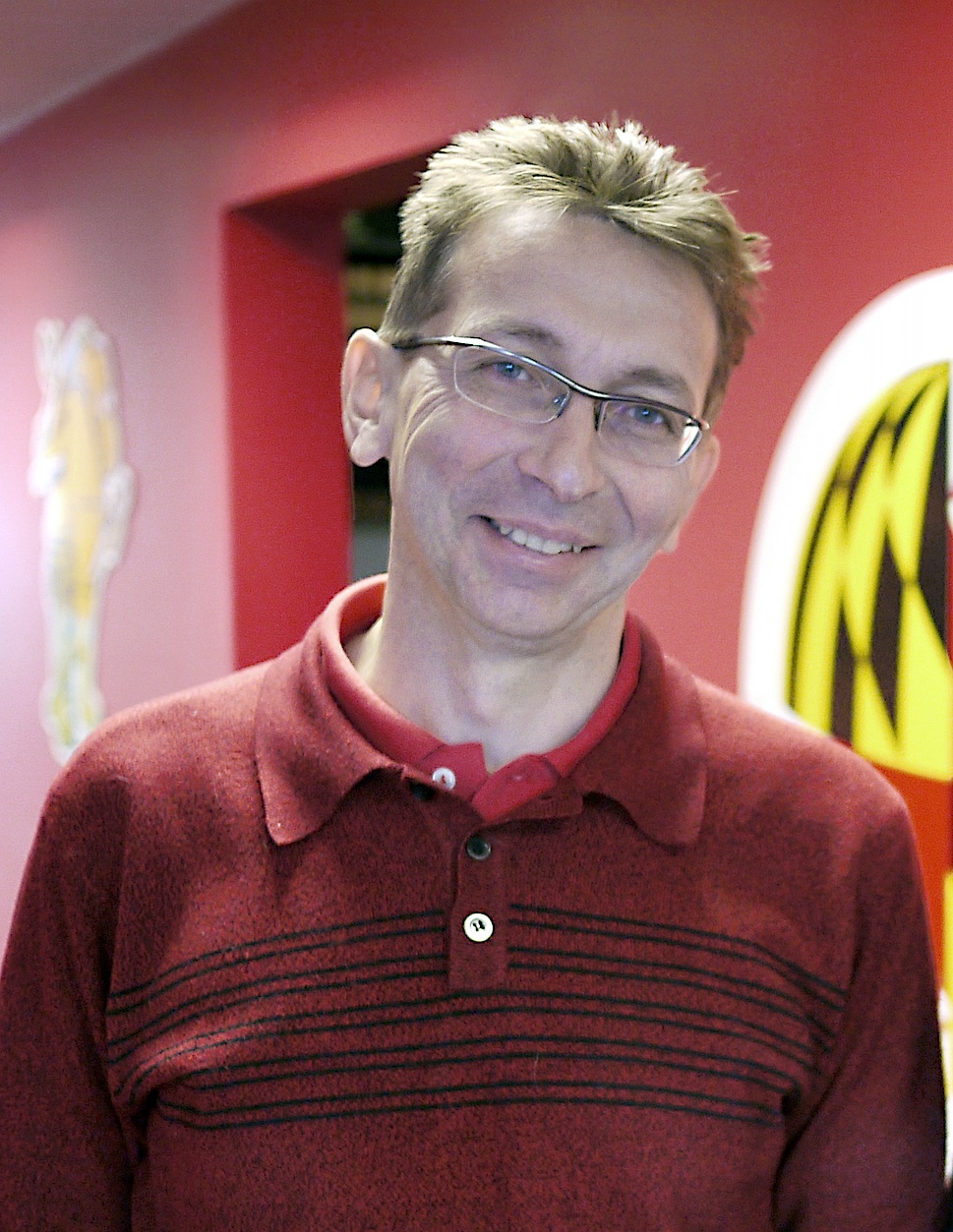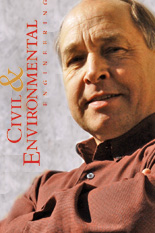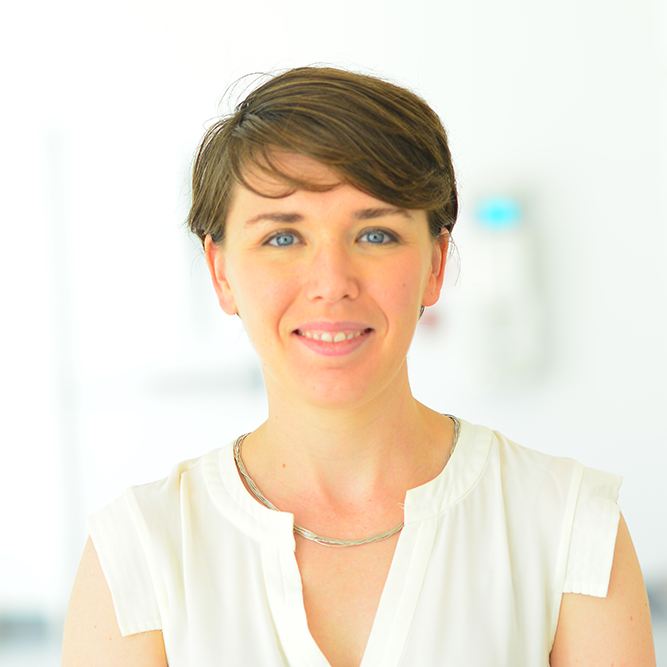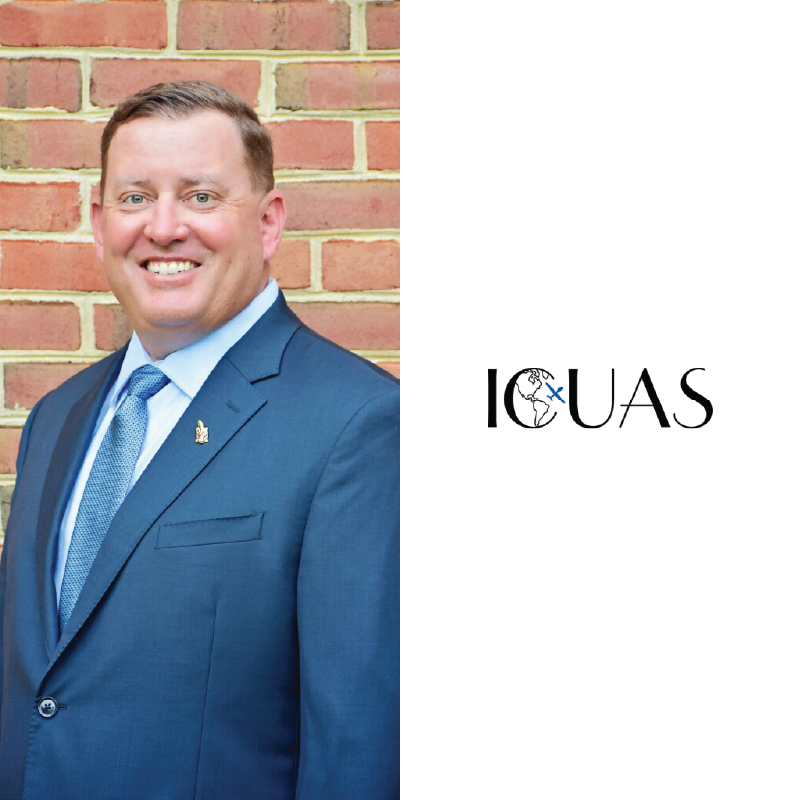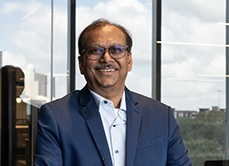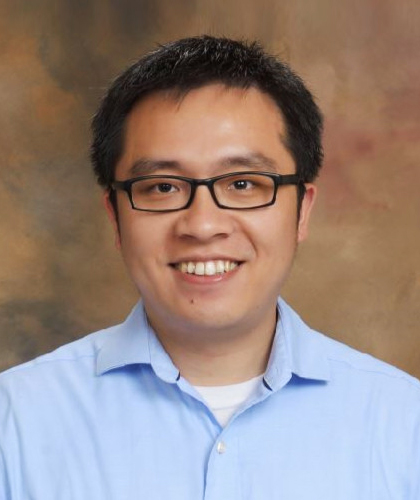UMD-Hosted Program Brought Together International Students to Develop Sustainable Energy Solutions
August 28, 2025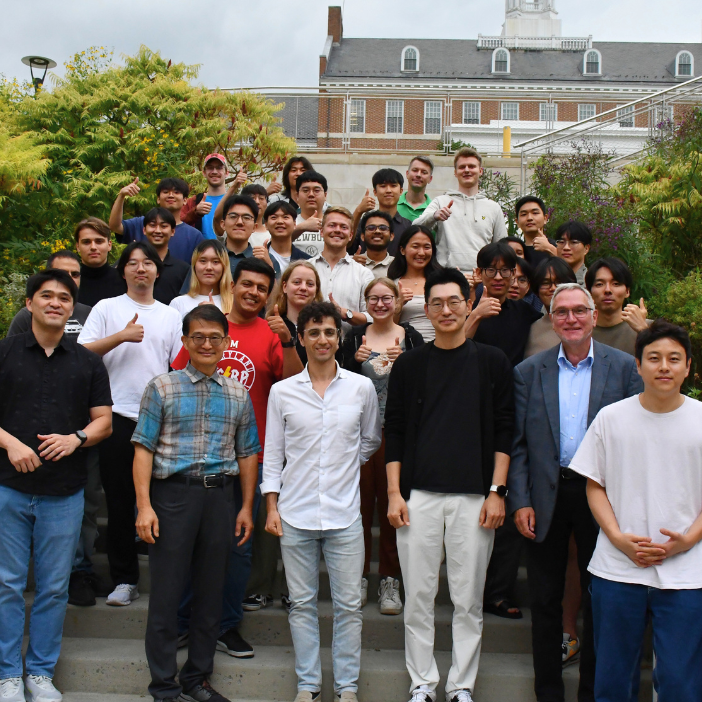
The University of Maryland (UMD) Center for Environmental Energy Engineering (CEEE) hosted the International Joint Seminar in Sustainable Energy Conversion and the Environment, July 21–August 1, 2025, which brought together engineering students from five countries to develop solutions to globally important energy-related issues.
The annual program is offered through a partnership between UMD, the Technical University of Hamburg in Germany, Korea University in South Korea, Shanghai Jiao Tong University in China and Waseda University in Japan. The universities host on a rotating basis.
In total, 28 students participated in this year’s program, including seven from UMD. For UMD students, the seminar was offered as a two-week intensive version of ENME701, “Sustainable Energy Conversion and the Environment.”
“The seminar offered a wonderful opportunity for University of Maryland students to collaborate with peers from around the world on sustainability issues that affect all of us,” says CEEE Research Professor Yunho Hwang. He led the seminar along with CEEE postdoctoral researcher Cheng-Yi Lee and visiting professors from the participating universities.
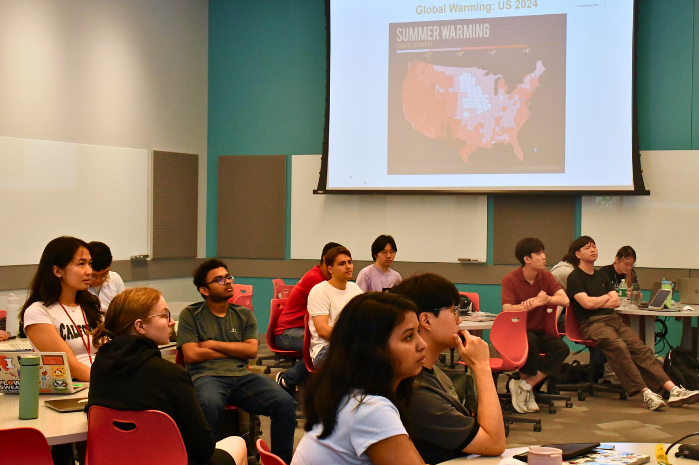
Twenty-one international participants joined seven UMD students, including three from CEEE, Md. Mehrab Hossen Siam, Dana Kang and Arpita Das.
Each morning, the seminar explored a different topic related to sustainable energy conversion. In the afternoon, the students worked together in small international groups to develop related solutions. For example, following a presentation about net-zero energy buildings, the teams proposed their own designs, incorporating features like solar panels and geothermal pumps, and calculated energy consumption.
Participants collaborated through long days, navigating language barriers and cultural differences. “Sometimes we worked until 8 or 9 p.m. It was challenging, but it was also very rewarding to hear the perspectives of students from different countries,” says Dana Kang, a CEEE graduate research assistant and mechanical engineering master’s student who was enrolled in the course.
Arpita Das, another CEEE graduate student who took the course, also enjoyed the international collaboration, especially the group projects. “We used to meet after lunch every day, and those sessions quickly became a highlight of my learning experience,” says Das, a third-year mechanical engineering doctoral student. “What stood out most was the spirit of cooperation — everyone contributed not only their time but also their unique skills and approaches. The diversity of thought expanded the quality of our discussions and made our projects far more creative and impactful.”
Outside of the seminar sessions, students bonded during meals and social events, everything from casual meetups at local restaurants to an excursion to Washington, D.C., where they toured the U.S. Capitol.
With seven instructors from five countries leading the seminar, participants benefited from diverse perspectives on the global issue of energy sustainability. Priorities varied based on each country’s geography and politics. “The seminar helped us see how each country’s approach to energy sustainability is shaped by its own circumstances,” says Kang. “For example, we learned that China relies heavily on solar energy, in part because it has vast areas of land suitable for large-scale solar panel installations. In contrast, smaller countries like South Korea or Japan have to prioritize other renewable energy sources.”
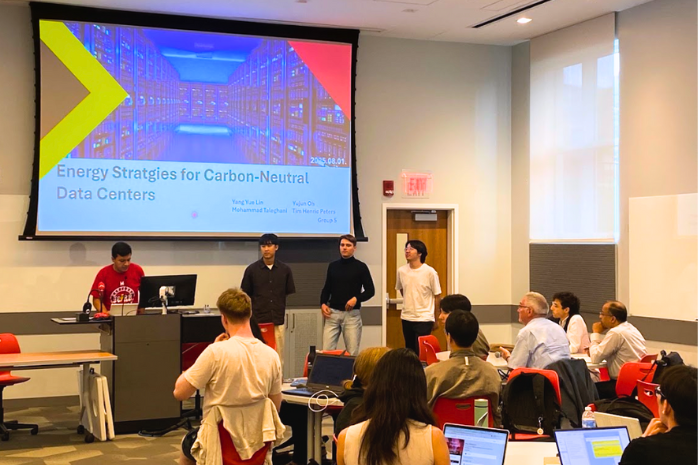
Participants worked together in small groups to develop solutions to energy challenges. For a final project, they presented sustainable strategies for powering data centers.
For the final project, students worked in their international teams to develop sustainable strategies to fulfill the energy-intensive demands of data centers in the year 2040. They investigated four main sources: natural gas, solar, wind and nuclear power. For her part, Das focused on nuclear energy, specifically small modular nuclear reactors. “Exploring their role in supplying reliable, low-carbon power was eye-opening,” she says. “Overall, the project highlighted the importance of integrating advanced technologies into future energy planning, and it left me optimistic about the possibilities ahead.”
Next year’s international joint seminar will be hosted by the Technical University of Hamburg, July 20-31, 2026. UMD students attending will earn credit for ENME701. For more information, email CEEE program manager Leanne Poteet.

